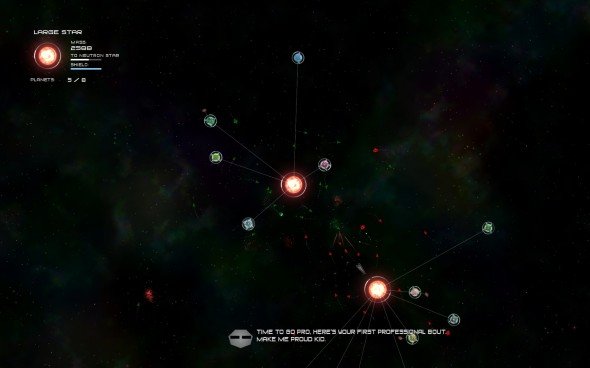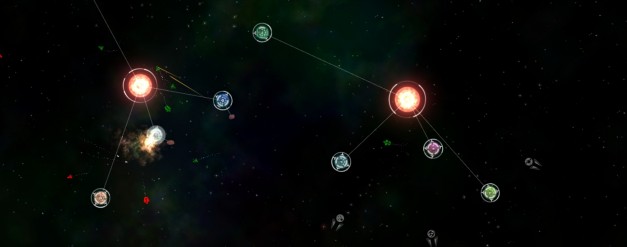Our Verdict
As a relaxing physics toy, it's perfect. As a mission-driven puzzle game, it's too hard, but still great fun.
PC Gamer's got your back
You begin life as a lonely asteroid, using the WASD keys to pootle around in the depths of space. By crashing into other space rocks, you gain mass until you become a small planet. Because that's science.
You don't stop there. You draw more asteroids into your orbit and consume them until you become a planet with enough mass to sustain life, and the little civilisation on top of you evolves and launches spaceships. You become a small star, which is slightly less scientific, orbited by your own planets, and suck them in to become a large star, a neutron star, and so on. Eventually, you become a black hole, swallow all the matter in the universe, and explode, forming a new universe. This isn't the end of the game.
Solar 2 makes a wonderful toy. It's relaxing to play with this vast, cosmic particle system, and to manipulate its simple rules to form your own galactic phenomena. My best solar system has three stars at its core, with ten planets orbiting them, each home to life. It's fun just to watch them move and teem with activity, and I've spent hours rolling up to neighbouring systems and watching the spiralling chaos as my planets' tiny ships do battle. And when I've had enough relaxation, I smash the suns together and send the planets hurling into space.

The game works only slightly less well during its missions, in which a mysterious god asks that you perform tasks tailored to whether you're an asteroid, a planet or a star. These may involve protecting a planet from a shower of asteroids, or entirely destroying a neighbouring system, or in one instance, playing rock music and dodging rabid fans – including stars twice your size – trying to smash in to you. The missions are often funny, and there's no penalty for failure, but the fiddly gravity-influenced controls mean completing them can be difficult even after a patch made it easier.
Whether you're performing a mission or just tootling around, the universe has a habit of randomly throwing things at you. Your stars and planets will be doing battle with a similarly sized, spinning solar system, and your monitor will be alive with explosions. And then aliens will warp in to join the battle. £7 is a good price for a universe.
As a relaxing physics toy, it's perfect. As a mission-driven puzzle game, it's too hard, but still great fun.


